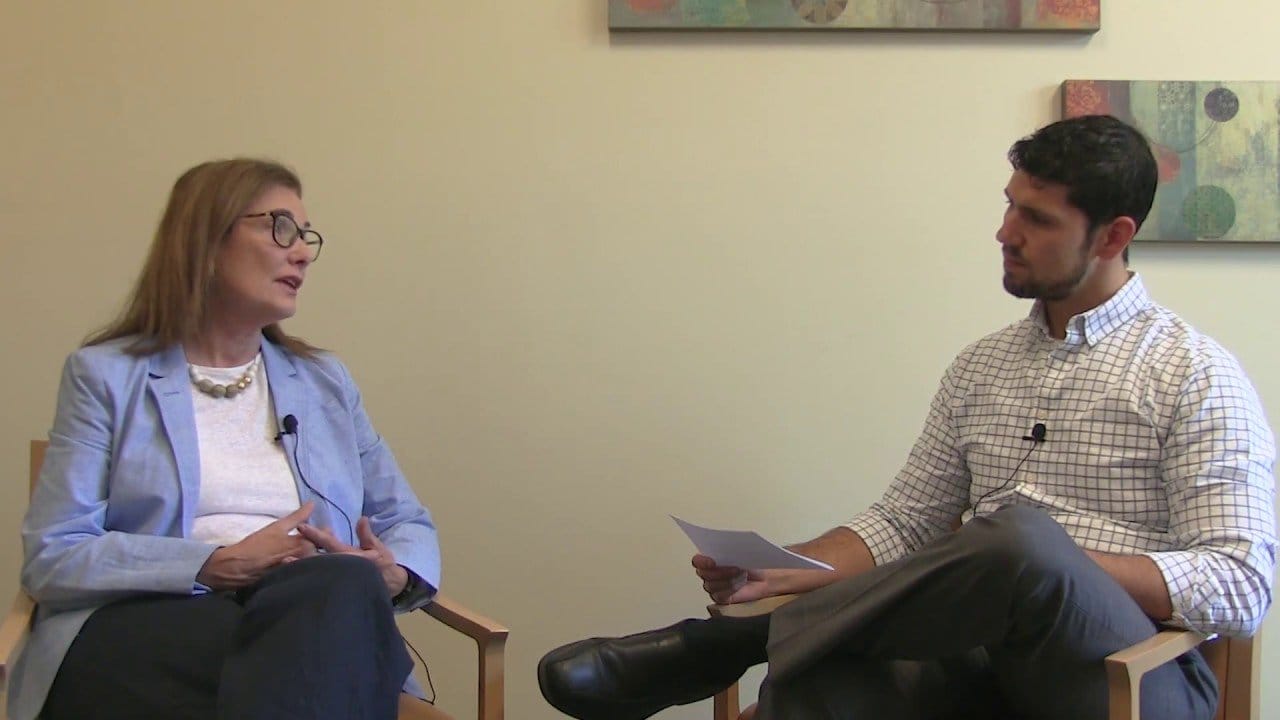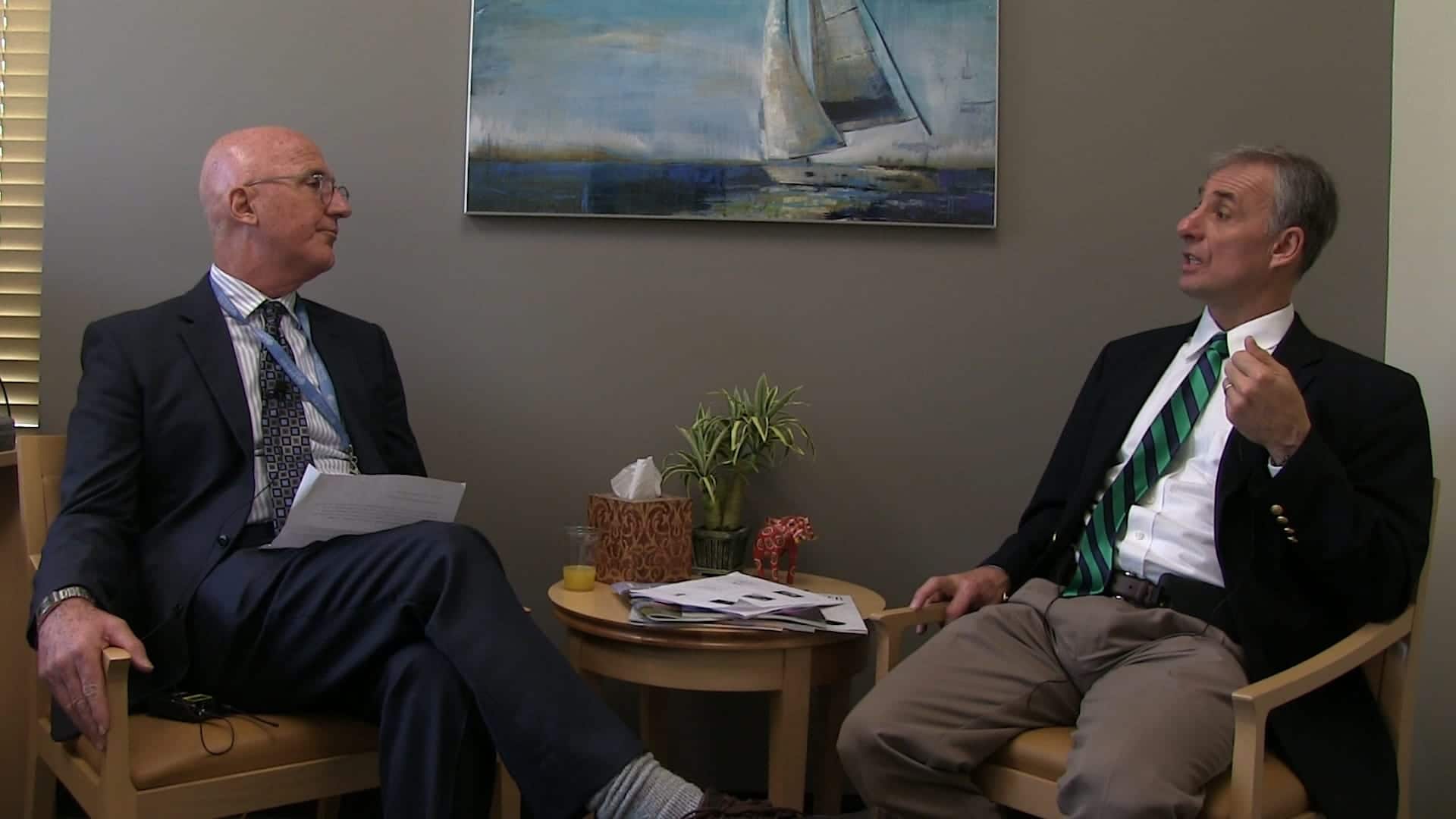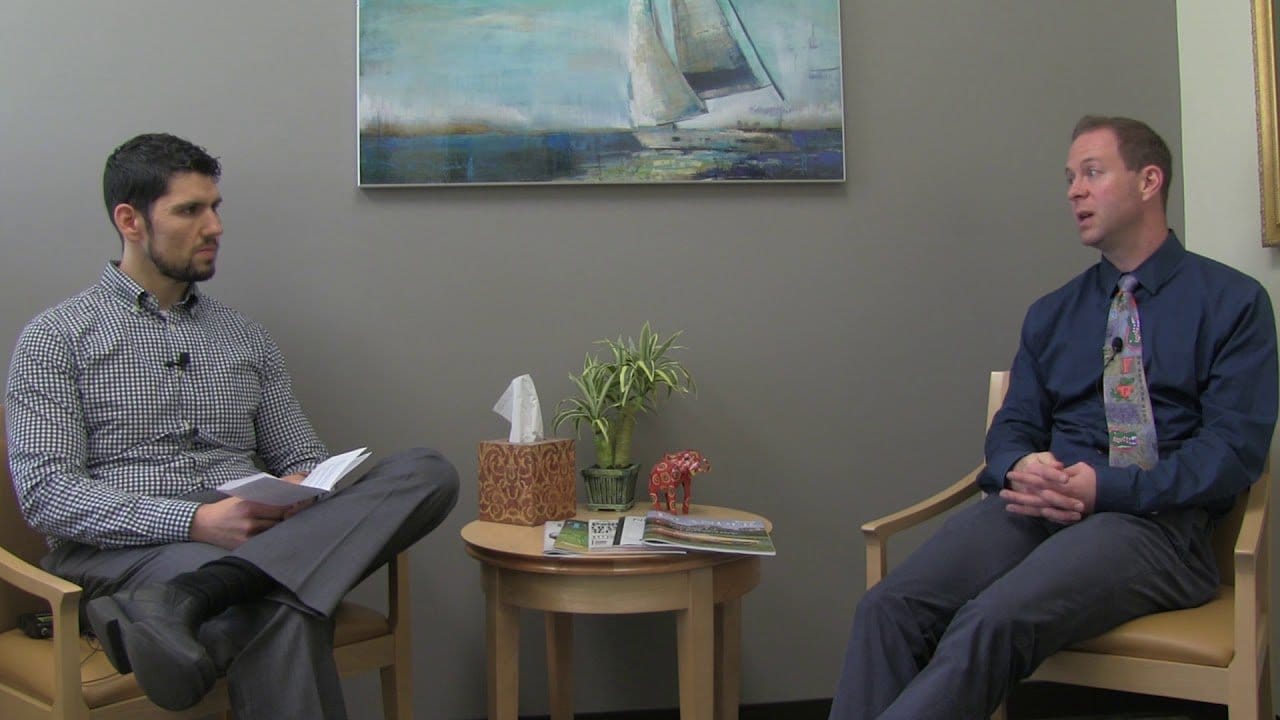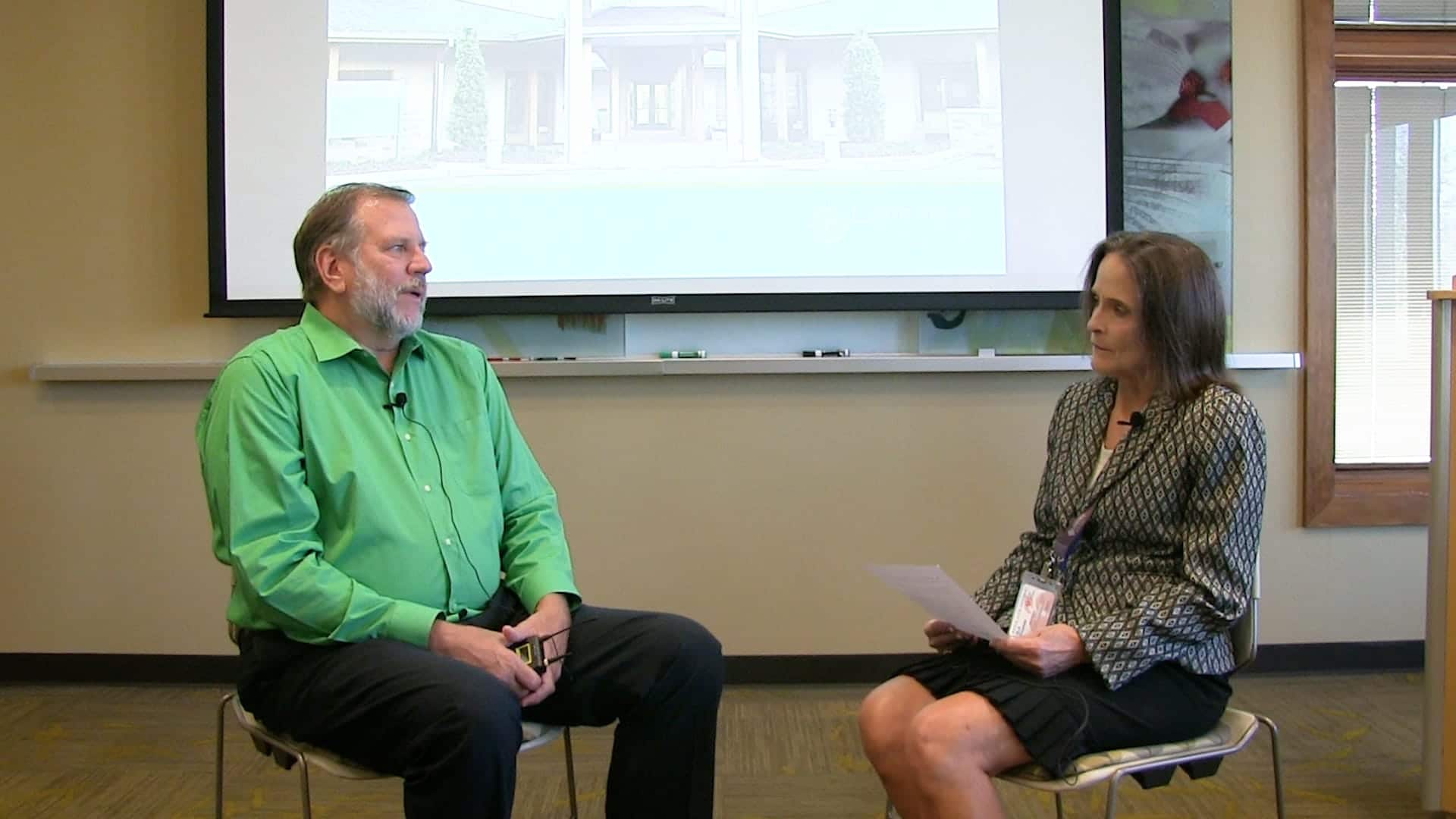We spent some time with Brent Katigan and Heather Cox from Peaceful Family Solutions to learn about their incredible program and how it got started.
Podcast Transcript
Gina Thorne: Hi everyone, and welcome to the Lakeview Podcast Series. I am pleased today to be joined by Brent Katigan and Heather Cox. Brent is the Executive Director for Peaceful Family Solutions in Oklahoma City, Oklahoma-based program, and Heather Cox is an LADC candidate and clinician with Peaceful Family Solutions. Welcome! It’s good to have you here. Brent Katigan: Thank you! Heather Cox: Thanks for having us! Brent: It’s great to be here. Very nice weather! Gina: Yes it is! I was reading information about you all earlier today and of course I mentioned to both of you that I have a background in prevention and of course I was very excited to hear that the nature of Peaceful Family Solutions is really about looking at the children and the teens, but also sort of looking at that third party caregiver that people don’t think about which is the grandparents or the friends that are taking care of these children that are coming from broken homes. So I loved hearing about this model that you all have because I don’t know anybody else that does it. So before we get into detail about Peaceful Family Solutions, I wanted to talk to you both about your backgrounds and figure out what got you into this, what got you here? So Brent, why don’t I start with you? How did you get into working with Peaceful Family Solutions? Brent: Well, since 1986 I started my career in substance abuse treatment. I cut my teeth in a residential program back before certification and licensure so I went to an on-site training program for a year and being the young counselor at the facility, I received most of the younger clients; so the young adults and the youngsters. Back in the 80s you could intermix 15-year-olds with the adults and so I had the 15-year-olds up until 24. I remember some of the therapists that were more seasoned saying, “Well, when you grow up you can work with adults,” and I wasn’t always sure I wanted to. I was really interested in the youth and late adolescence which is usually delayed adolescence in the younger adults when they clean up, so it has always been an attractive population. Something, too, if you were under 12, you really weren’t allowed into family therapy or coping skills training because the curriculum wasn’t age-appropriate. So I always wondered about the kids and personally, I come from a home where addiction tore it apart and I do remember at age 10 or 11 lying in bed after my father committed suicide with addiction wondering who is going to die next? And after that, I thought that when I grow up and have children, it’s not going to be that way. So I lost that thought to some degree until January, two years ago. A friend and colleague wanted to have coffee with me and he stated that he was raising his grandchildren – I believe at the time they were probably six and eight – and due to both mother and father being addicted and in and out of recovery wasn’t quite creating a safe place for them. For the children, he had a lot of resources but he didn’t know what to do for these kids. So he said, “Is there anybody in the community doing it?” and with my background, I told him I would take some time and do a needs assessment and let him know what I find. So I found that there was 45-60,000 families like his in Oklahoma which equated to about 129,000 children in that situation, and that’s just kinship families and grandparents raising kids, not kids in the home of a recovering person or an addicted person. We know that 1 in 4 kids in school are pretty close to someone that is addicted, so I came back and told him, “Well if you purchase a yellow car, you wouldn’t identify any of the other yellow cars on the interstate and because there was one agency that had put together a grandparents program, but still the children weren’t being addressed. We couldn’t find a peer-to-peer children’s group or a pre-teen group. You and I both know that young adults with young children that come to treatment, at best, is a 50/50 chance that they’re going to take some real change home for children. It doesn’t mean that they won’t stay sober for a bit or for a year or two, but will they bring change and awareness for the children? It’s just not happening, so there wasn’t anything like that going on. So he asked me who I knew that would willing and capable of doing that so I looked around and couldn’t find anybody and he said, “How about you?” And so that’s kind of how we started. Gina: That’s great. Brent: From that, I’ve written different family programs for different treatment facilities but I didn’t want to reinvent the wheel, so I had heard about the Betty Ford Children’s Program that Jerry Moe had created. I went and volunteered a couple of times for him in the Denver area, invited him to Oklahoma and he said “No way” but then I told him I wanted to bring his program to Oklahoma and he said “Ok, you just can’t call it Betty Ford’s,” and I said “Ok” so we now have Peaceful Family Solutions Children’s Program in Oklahoma. Gina: That’s fantastic. So you’ve been in existence for a little over a couple of years now? Brent: A couple of years, a little over two. We did our first intensive children’s program last year and we’ve completed four in the last year and we are doing one a month now and I expect that will climb to two a month in the summer. It’s building a lot of momentum as we were talking about earlier with Heather, we are going to have to duplicate really quick because there’s just not enough time to do what we are doing and we can just see the demand coming faster and faster. Gina: Well, so, Heather, what is your role at Peaceful Family Solutions? Heather: So my role is that I work with the children and the children’s programming and I see patients as well, but what got me involved in it was that I worked in the field of a residential treatment setting for almost four years and then I had a little one and my hours were 1-10 and so I didn’t want to do that raising a little one so I was looking for another opportunity and contacted someone in the recovery community and contacted Brent. How I identified with the program is that I am a step-parent that was having my ex’s son living with us on the weekends and my ex went to treatment at Valley Hope. So when he went to treatment, his son was probably eight at the time and we told him that his dad was learning. We didn’t tell him what he was doing or where he was going and so to see this program and have this available for those children and to know the shame aspect of not wanting to share that with the child and thinking that they don’t know, to seeing this side of it where the kids do know, everything is interactive, the kids are raising their hands and giving us feedback and so I loved that about it. When I worked at Valley Hope in Cushing, if they weren’t 15 or older then they couldn’t participate, so what happens to those little ones? And if we can get at the 7-12 year olds, hopefully if they haven’t used already then they have a different solution than picking up and using like mom and dad or their brothers and sisters. So that’s how I got connected, so I have a family member that has gone through it and understands it and it kind of added that component to what we do. Gina: That’s great! Some folks have gotten a little bit of a taste of your program, but if they wanted to learn more about it, how can they find out more about your program or get in touch with you about the services? Heather: They can reach us at 405-601-2691 or online at PeacefulFamilySolutions.org or on Facebook! Brent: And we did a recent video of all four days and you can find that on Facebook. Gina: Fantastic. Well you all have a very unique program and obviously filled a big gap in your community. So we invite those that are listening to please take some time to get to know Peaceful Family Solutions. If you know someone that is struggling with substance abuse and needs inpatient treatment right away, we invite you to visit us at LakeviewHealth.com or give us a call at 460-846-1496.




